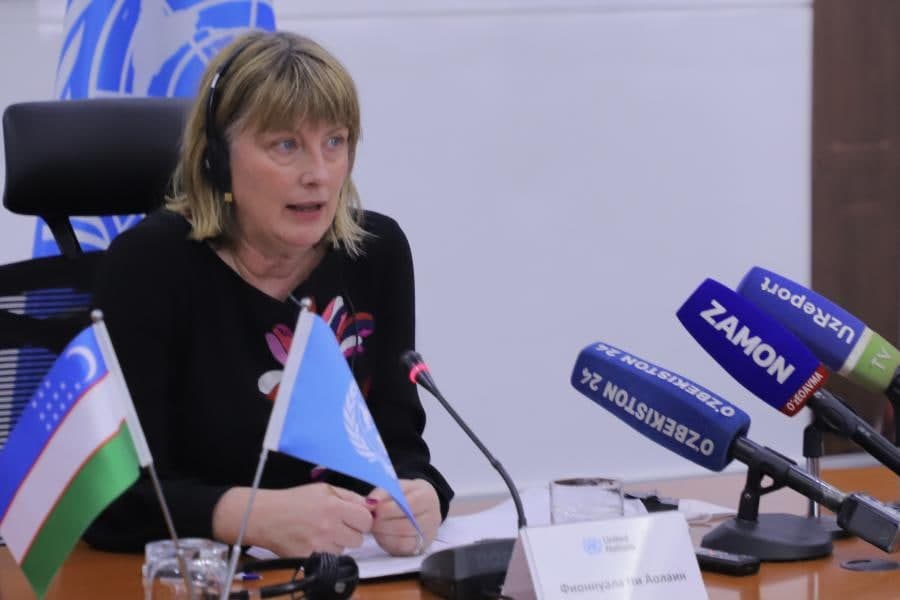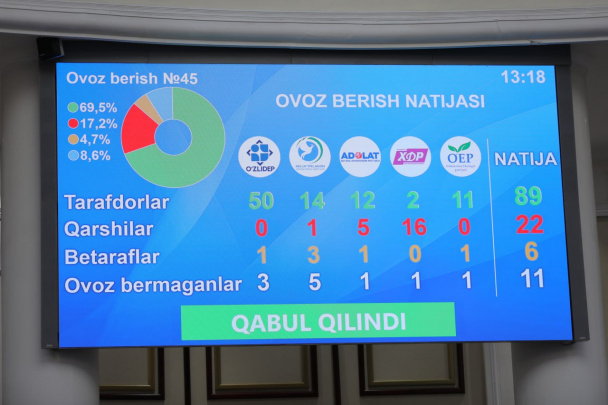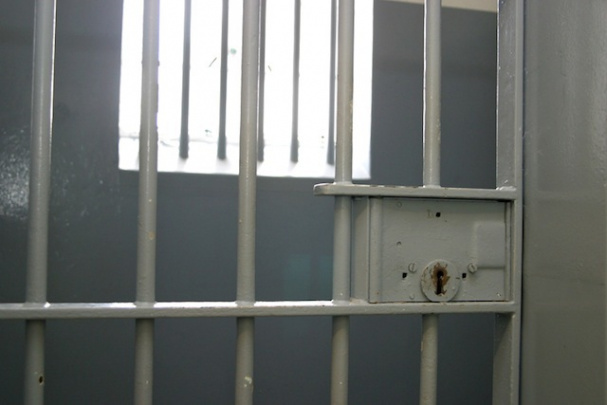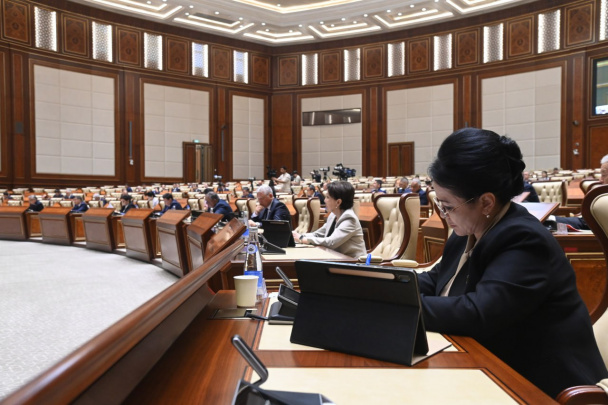UN Special Rapporteur recommends Uzbek authorities to reform legislation in the field of combating extremism and terrorism

Photo: UN Office in Uzbekistan
Special Rapporteur Fionnuala Ní Aoláin studied Uzbekistan’s counter-terrorism and extremism laws. She identified reasons for concern about the general and vague wording in some articles of the Criminal Code. According to her, it is necessary to significantly revise these provisions in order to ensure their compliance with international law, as well as standards in the field of combating terrorism and human rights.
As the press service of the UN Office in Uzbekistan reported, following a 10-day visit to the country, Fionnuala Ní Aoláin, Special Rapporteur on the promotion and protection of human rights and fundamental freedoms while countering terrorism, worked on a wide range of counter-terrorism issues and called for expanded measures to protect fundamental human rights, including the right to freedom of expression, freedom of assembly, fair trial, decent conditions of detention, freedom from torture, and the right to freedom of religion.
The expert praised the “Mehr” operation carried out by the government since May 2019, the purpose of which is to repatriate and reintegrate hundreds of women and children, mainly from the conflict zones in Syria, as well as from Iraq and Afghanistan.
“The repatriation model created in Uzbekistan and based on family and community is an example of best practice in repatriation, ensuring the best interests of the child and full reintegration of women returning from conflict zones as a priority of political, legal and social activities,” Ní Aoláin said.
The expert welcomed the government’s practical attention to avoiding stigma and ensuring access to fundamental rights, including economic and social, and also stressed the importance of the cooperation of the government of Uzbekistan with UNICEF and other UN human rights institutions, including its mandate and OHCHR.
“The model of repatriation and reintegration created in Uzbekistan provides a roadmap for other governments seeking to bring their citizens back from conflict zones,” she said, adding that Uzbekistan has shown an example of effective and humane work that meets human rights standards.
The Special Rapporteur also examined Uzbek counter-terrorism and extremism laws and identified reasons for concern about the general and vague wording in some articles of the Criminal Code.
According to her, it is necessary to significantly revise these provisions in order to ensure their compliance with international law, as well as standards in the field of combating terrorism and human rights.
She emphasized the need to address the issue of the negative impact of the existing legislation in the aspect of combating the financing of terrorism on civil society and non-profit organizations, observing the FATF Recommendations and human rights standards.
With regard to past human rights violations, she stated that ensuring accountability and transparency would underpin and support ongoing reform efforts.
Ní Aoláin recommends the establishment of a formal and independent review mechanism capable of investigating and providing effective remedies and redress to address serious human rights violations against those previously prosecuted in public security cases, especially those who have been tortured.
Recommended
List of streets and intersections being repaired in Tashkent published
SOCIETY | 19:12 / 16.05.2024
Uzbekistan's flag flies high on Oceania's tallest volcano
SOCIETY | 17:54 / 15.05.2024
New tariffs to be introduced in Tashkent public transport
SOCIETY | 14:55 / 05.05.2023
Onix and Tracker cars withdrawn from sale
BUSINESS | 10:20 / 05.05.2023
Latest news
-
Uzbekistan looks to ease visa process for Canada, Argentina, and Australia
SOCIETY | 13:19
-
Saida Mirziyoyeva joins jury of Zayed Award for Human Fraternity
POLITICS | 12:57
-
Uzbekistan's first ambassador to Serbia begins official duties
SOCIETY | 11:27
-
Massive embezzlement uncovered at Andijan State University: Rector, chief accountant and other officials jailed
SOCIETY | 20:36 / 07.07.2025
Related News

12:46 / 07.07.2025
New penalties and obligations await farmers: Draft law sparks controversy among deputies

18:21 / 27.06.2025
Uzbekistan introduces mandatory health checks for detainees to curb torture

14:42 / 26.06.2025
Labor migration bill rejected for further amendments: Senate seeks stronger protections and accountability

17:13 / 25.06.2025



